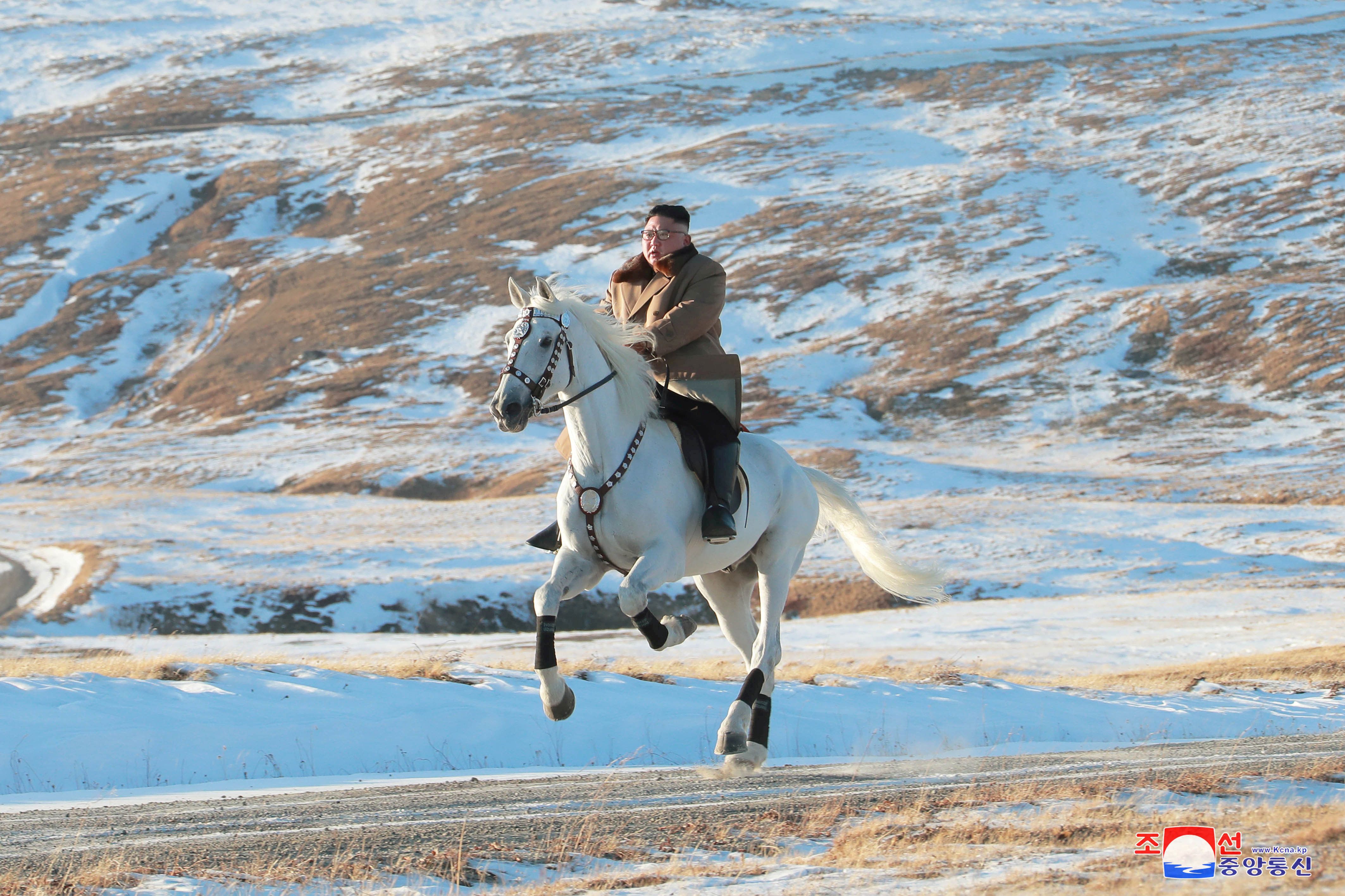October 17, 2019
Catalonia's violent revolt: Violent protests have roiled the Spanish region of Catalonia for days since the Spanish Supreme Court sentenced nine Catalan separatist leaders to lengthy jail terms over their roles in the illegal 2017 independence referendum. Separatists have torched cars and rubbish bins. Police are shooting at them with rubber bullets, and at least 100 people have been hurt. Damages in the Catalan capital of Barcelona have already topped 1 million euros, and neither side shows signs of backing down. To the contrary. Quim Torra, Catalan government chief, has now pledged to hold a new independence vote within two years. As Spain heads to national elections next month, its fourth in four years, we're watching to see if the renewed focus on the separatist movement might swing voters, particularly if these protests get worse.
Kim Jong-un riding a horse up a snowy mountain: North Korea's state-run news agency released a series of propaganda photos of Kim Jong-un gliding across a powdered mountain atop a regal white horse. Twitter was abuzz with witty commentary about the photos, and rightly so: they're as amusing as you'd think, perhaps even rivaling Vladimir Putin's iconic bare-chested horse-riding snaps. But the propaganda could actually be a sign of something more than just the Dear Leader's wintry equestrian bliss. The backdrop for the shoot, Mount Paektu, has a sacred meaning in North Korean regime folklore: it's the mythical birthplace of Kim II Sung – Kim's grandfather and the founder of North Korea – and it was a tactical base during the Korean War. In the past, Kim Jong-un has visited the site before making major geopolitical moves. We're going to resist the urge to speculate here, but we're watching to see what Kim has in store now that he's come down from the mountain.
Canada's unpopular candidates battle it out: Canadians will head to the polls on Monday to elect a prime minister, ending six weeks of campaigning that has focused more on personality and ad-hominem attacks than on policy. Justin Trudeau, the sitting prime minister and leader of the Liberal Party, and the Conservative Party's Andrew Scheer, have been polling neck and neck, but neither is expected to win an outright majority, raising the prospect that a smaller party might emerge as powerbroker in forming a parliamentary majority. Trudeau's popularity has dipped in recent months after a series of scandals that dealt a blow to his finely-honed progressive image. Chief among them were photos that emerged showing that he'd worn blackface and brownface two decades ago. In what appeared to be a last-minute ditch to boost his prospects, Trudeau received an endorsement from President Obama, who's popular among Canadians. But after a contentious campaign will this be enough to get the incumbent over the line?
What We're Ignoring:
Pete Navarro's imaginary friends: Much of Donald Trump's policy against China has been shaped by one of his top advisers, the Harvard-trained economist Peter Navarro, author – most famously – of the book Death By China. But it now appears that one of Mr. Navarro's own top advisers is an imaginary person. Many of Mr. Navarro's books feature a character named Ron Vara, who exudes an earthy sort of wisdom with bons mots like "don't play checkers in a chess world" or slightly crazier musings like, "only the Chinese can turn a leather sofa into an acid bath." Mr. Vara, whose name is an anagram of his creator's, is a convenient figment of Navarro's imagination. However, Mr. Navarro, whose hardline views on China carry a lot of weight in the West Wing, is not.
More For You
Ukraine's President Volodymyr Zelenskiy, Finland's President Alexander Stubb, Estonia’s Prime Minister, President of the European Commission Ursula von der Leyen and other European leaders visit memorial to fallen Ukrainian defenders at the Independent Square on the fourth anniversary of Russia's full-scale invasion, in Kyiv, Ukraine February 24, 2026.
Ukrainian Presidential Press Service/Handout via REUTERS
Somewhere in the Donbas region, Ukrainian soldier Artem Bondarenko says he hasn’t slept through the night in months as he defends Eastern Ukraine.
Most Popular
Members of the special units of the National Guard and the Secretaria de Seguridad Ciudadana stand guard in front of the Fiscalia General de la Republica, where the investigation into the operation in which Nemesio Oseguera Cervantes, alias "El Mencho", founder and leading head of the Cartel de Jalisco Nueva, was killed, is underway.
Félix Márquez/dpa via Reuters Connect
- YouTube
In this Quick Take, Ian Bremmer warns that US military strikes on Iran are “looking increasingly imminent” as diplomacy appears to stall.
© 2025 GZERO Media. All Rights Reserved | A Eurasia Group media company.
